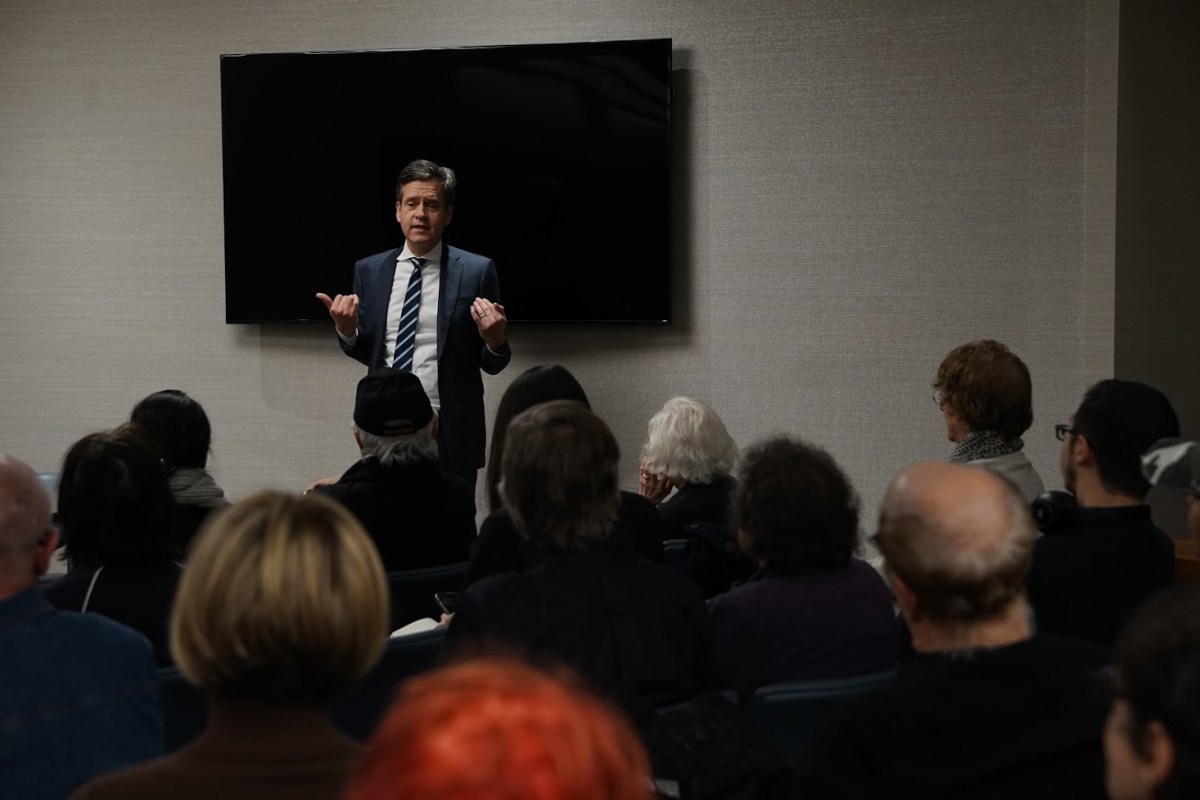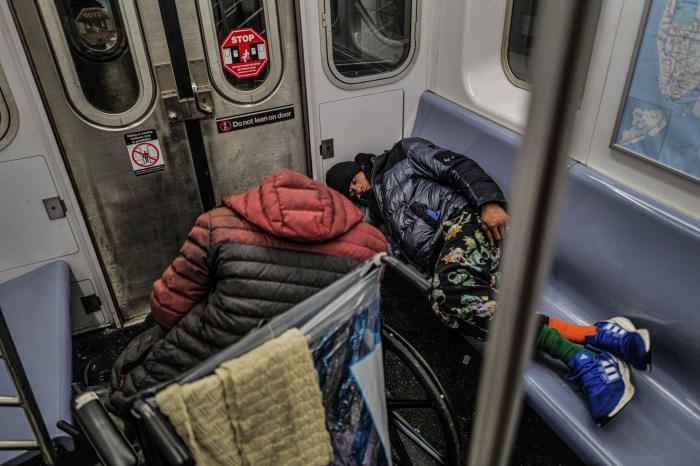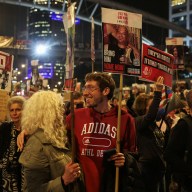By Eddy Martinez
Concerns over New York’s bail reform law drew dozens of residents to a NYPD 6th Precinct community meeting with Assistant District Attorney Kelly Stankiewicz at the Orthopedic Institute in Greenwich Village on Jan. 29.
Residents and police officers expressed worries that the newly enacted law emboldens criminals and hampers police effectiveness because it ends cash bail for most misdemeanor offenses, which they say allows people to commit additional crimes after they are released pretrial.
Deputy Inspector Robert O’Hare, from the 6th Precinct, began the meeting by reciting a list of recent offenses that he claims shows some criminals taking advantage of the reform. A homeless man who attacked a woman in Midtown on Jan. 11., is one example, O’Hare said.
“We had an individual…who assaulted, unprovoked, a woman at 6:15 in the morning, knocked her teeth out and then continued on his rampage in Midtown,” said O’Hare. “Then (the homeless man) came back into my office eight hours later.” The suspect was released from police custody after the attack and arrested a second time for “aggressive panhandling” near a bank in Greenwich Village. O’Hare then claimed that CompStat data shows there has been an increase in offenses compared to last year.
Stankiewicz explained to residents that there are two types of violent offenses that can lead to an automatic release, second-degree burglary and second-degree robbery but only under certain circumstances.
Deputy Inspector O’Hare later claimed that burglary suspects are taking advantage of this law. “(One) burglar, he walked out of court and he had the nerve to ask my cops: ‘Can you give me a ride back to the sixth precinct? I’m gonna get my property back.’ That’s a true story.”
But state Senator Brad Hoylman, who was also present at the meeting, said that law enforcement experts and district attorneys were included in discussions leading up to passage of the law. Hoylman went on to say that “yeah, there is a three incident uptick in burglaries over the last month that I don’t think tells a story that we need to be certainly examining.”
According to Chelsea public defender Eliza Orlins, also present at the meeting, reminded residents that they should think about those who have been victimized by cash bail.
“In this country, we say that you have the presumption of innocence, you are innocent until proven guilty,” she said. “Unfortunately, my clients who weren’t able to buy their freedom, it certainly didn’t feel that way for them.” The Brennan Center for Justice has previously written that there is no proof that the elimination of cash bail leads to increases in violent crime.
Some in the audience expressed worry that the law went too far, including one resident who complained that the police were being prevented from doing their jobs. Jean Luc Callet, 72, who lives in Greenwich Village, says that the real issue is not the police. “It’s the judicial system, they need to put more money in that, rather than blame the cops, tie their hands and let the crews run wild. I mean, it makes me nuts.”
Orlins pointed out that the room was majority white. “There were fewer than five people of color in the room. I don’t think the people in this room have necessarily had a family member impacted by the criminal legal system. And if they did have a family member arrested, that person would likely be treated fairly, would be able to hire an attorney and would be able to post bail if bail were set.”
































